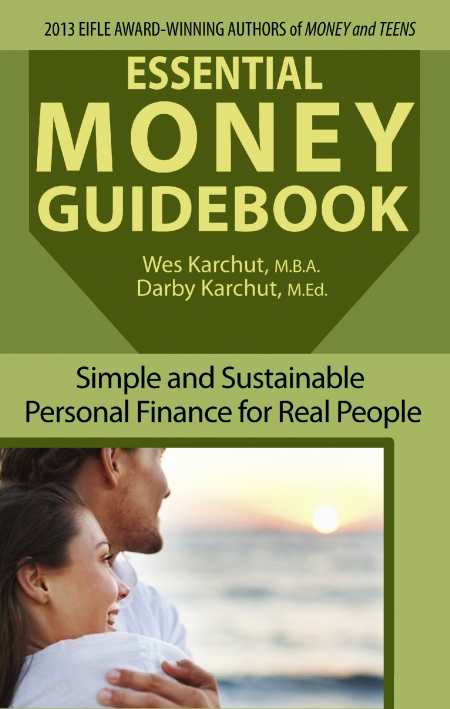Essential Money Guidebook
Simple and Sustainable Personal Finance for Real People
This well-written primer on personal finance will help anyone manage their money better.
The strongest aspect of the Essential Money Guidebook is its accessibility. Readers can choose from numerous books offering advice about personal finances, but this one clearly benefits from the blending of the expertise of its two authors, one a financial expert and the other a social-studies teacher. This combination helps ensure that the information presented is not only authoritative but also instructive and easy to understand.
The key point at the start of the book should allay any apprehension: “This book,” writes the authors, “is about making smart financial decisions, not about working hard. … Your lifestyle choices should be first and foremost, ahead of managing your money, and not the other way around.” Such a perspective diffuses any fear the average reader may have about the uncertainties of money management and immediately puts the reader in a positive frame of mind.
Of course, the Karchuts are not naïve—they address just about every financial challenge imaginable. The book is divided into eleven chapters that cover such mandatory topics as insurance, identity theft, checking and savings accounts, credit and debit cards, credit reports and scores, assets/liabilities/net worth, student loans, buying a home, retirement planning, and investing. While readers will find these topics covered in other personal-finance books, the authors manage to make the information highly engaging, writing in a style that is nonjudgmental, helpful, and positive. The first chapter, “Consumer Savvy,” is a good example. Often overlooked by financial writers is the highly sophisticated marketing environment consumers face when it comes to making spending decisions. The Karchuts cover this topic effortlessly, doing an excellent job of explaining common marketing techniques used by companies, such as price matching, bundling, introductory pricing, and being eco-friendly. In concluding this chapter, they write, “The brave new world of consumer manipulation is upon us. … Let your dollars do the walking and make sure that you get full value, before you sign on the dotted line.”
The authors’ investment advice is equally straightforward. Instead of overwhelming first-time investors with a lot of financial terminology and complex details, the Karchuts discuss investor psychology, adopting a long-term perspective, as well as the need to develop a sensible mix of investments. They provide clear definitions of such terms as asset allocation, risk, and diversification. Thankfully, they also include a section on financial scams with some useful tips on how not to be duped. Essential Money Guidebook is an excellent personal-finance primer for consumers at any stage of life—and it should go a long way to boosting one’s confidence in money matters.
Reviewed by
Barry Silverstein
Disclosure: This article is not an endorsement, but a review. The publisher of this book provided free copies of the book to have their book reviewed by a professional reviewer. No fee was paid by the publisher for this review. Foreword Reviews only recommends books that we love. Foreword Magazine, Inc. is disclosing this in accordance with the Federal Trade Commission’s 16 CFR, Part 255.

